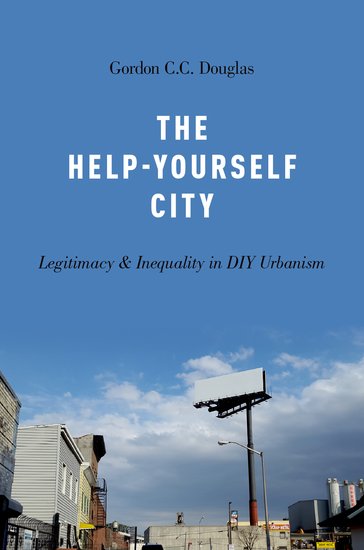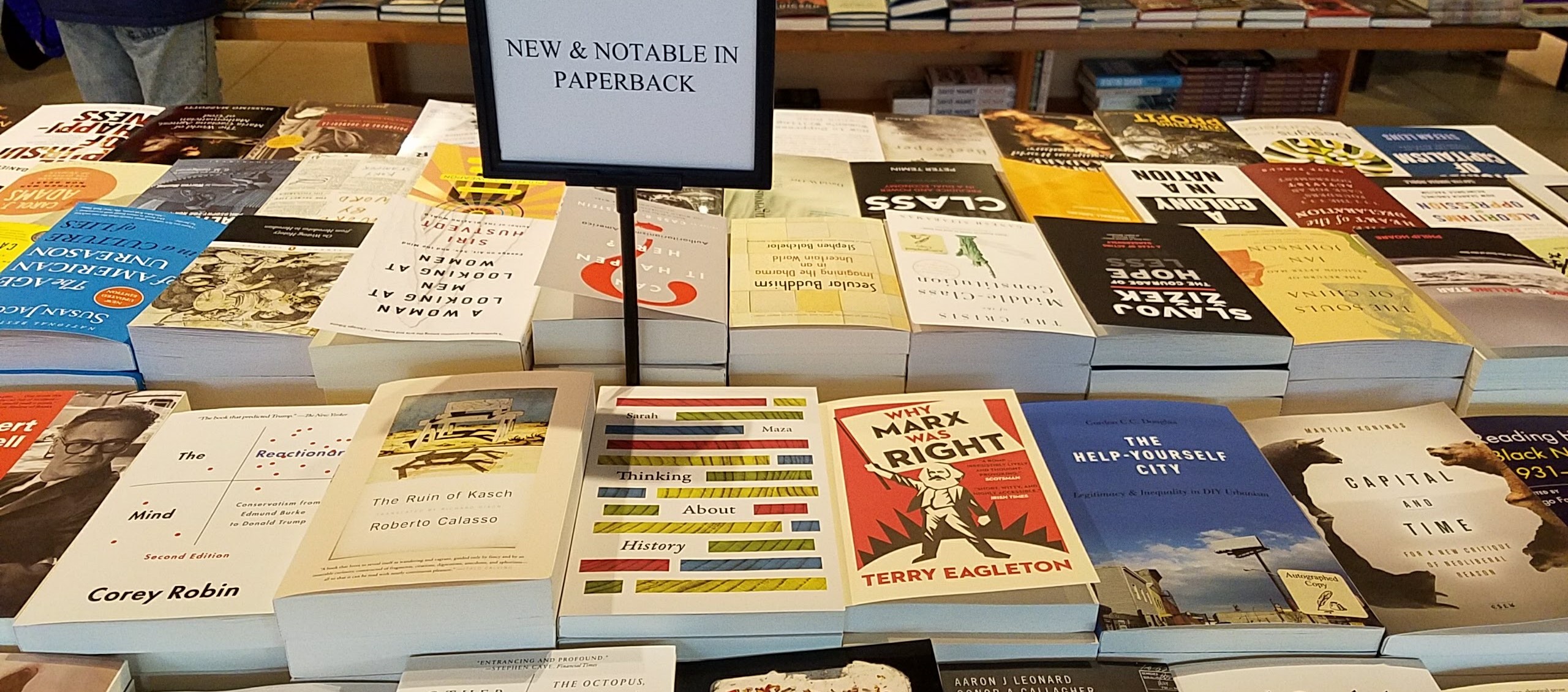Out Now from Oxford University Press!
The Help-Yourself City
Legitimacy & Inequality in DIY Urbanism

When cash-strapped local governments don’t provide adequate services, and planning policies prioritize economic development over community needs, what is a concerned citizen to do? In the help-yourself city, you do it yourself. The Help-Yourself City presents the results of nearly five years of in-depth research on people who take urban planning into their own hands with unauthorized yet functional and civic-minded “do-it-yourself urban design” projects. Examples include homemade traffic signs and public benches, guerrilla gardens and bike lanes, even citizen development “proposals,” all created in public space without permission, but in forms analogous to official streetscape design elements.
With research across 17 cities and more than 100 interviews with do-it-yourselfers, professional planners, and community members, the book explores who is creating these unauthorized improvements, where, and why. In doing so, it demonstrates the way uneven development processes are experienced and responded to in everyday life. Yet the democratic potential of this increasingly celebrated trend is brought into question by the privileged characteristics of typical do-it-yourself urban designers, the aesthetics and cultural values of the projects they create, and the relationship between DIY efforts and mainstream planning and economic development. Despite its many positive impacts, DIY urban design is a worryingly undemocratic practice, revealing the stubborn persistence of inequality in participatory citizenship and the design of public space. The book thus presents a needed critical analysis of an important trend, connecting it to research on informality, legitimacy, privilege, and urban political economy.
With research across 17 cities and more than 100 interviews with do-it-yourselfers, professional planners, and community members, the book explores who is creating these unauthorized improvements, where, and why. In doing so, it demonstrates the way uneven development processes are experienced and responded to in everyday life. Yet the democratic potential of this increasingly celebrated trend is brought into question by the privileged characteristics of typical do-it-yourself urban designers, the aesthetics and cultural values of the projects they create, and the relationship between DIY efforts and mainstream planning and economic development. Despite its many positive impacts, DIY urban design is a worryingly undemocratic practice, revealing the stubborn persistence of inequality in participatory citizenship and the design of public space. The book thus presents a needed critical analysis of an important trend, connecting it to research on informality, legitimacy, privilege, and urban political economy.
Harvey Molotch"Rising above mere ethnographic survey of 'do it yourself' urban projects-like guerrilla gardening or citizens' refashioning an urban space-Douglas inventories civic engagement full-on, including larger issues of social order and the costs and benefits of people taking pieces of the city into their own hands. Always thoughtful and without naiveté, he gives us a glimpse of pathways for urban reform and, more important, some manifestations of hope."
|
Saskia Sassen"A book I have long been waiting for! Douglas explores the diverse ways in which people engage urban space and bring their ideas on to the streets themselves through site-specific planning efforts. The book shows us the broad range of urban knowledges present in any city neighborhood, but also the challenges of negotiating them in public space."
|
Michael Sorkin"Do It Yourself urban design is an insubordinate, self-authorized, 'informal,' response to both the deficits of official planning and to the 'help yourself' regime of our old friend, neoliberalism. In this fascinating-and critical-reading, Douglas presents DIY as a progressive inversion of the broken windows theory of policing, rejecting control by coercive orderliness and seeking to cure deficits in the public realm by wanton acts of creative, corrective -if often privileged-addition.
|

